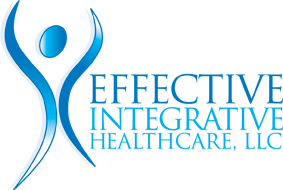Whiplash 101 from Your Chiropractor
If you recently injured your neck, you might suspect you have whiplash. This condition can be very uncomfortable, but with the proper chiropractic care, you can receive the relief you need. Learn more about whiplash to help you determine if you should seek medical treatment.
Causes of Whiplash Injuries
While a car accident is the most common way to get whiplash, it’s not the only cause. Whiplash can also occur from playing high-impact sports, such as football, boxing or gymnastics. It can also result from falling and hitting your head on the way down. Physical abuse, such as being punched or shaken, can also cause whiplash.
Signs of Whiplash
It’s important to know that the symptoms of whiplash are not always immediate. They often develop within 24 hours of the incident, though some symptoms don’t appear until days or weeks later. The most common symptoms include:
- Neck pain that worsens with movement
- Stiffness and limited range of motion
- Muscle spasms
- Headaches, especially at the base of the skull
- Tenderness in the shoulders, arms or upper back
- Numbness or tingling in the arms
- Jaw pain
- Dizziness
- Fatigue
Other more serious symptoms, which are less common, include:
- Tinnitus (ringing in the ears)
- Blurred vision
- Difficulty concentrating and remembering
- Sleep disturbances
- Irritability and depression
Long-Term Effects of Whiplash
People with mild to moderate cases of whiplash usually heal within a few weeks. However, more severe injuries can cause long-term effects that last for months or even years. It’s difficult to predict whether your acute injury could turn into chronic pain, but in general, you’re more likely to deal with long-term complications if:
- Your initial symptoms are intense and come on rapidly after the incident.
- Your symptoms include severe neck pain, headaches and radiating pain in your arms.
- You have had whiplash before.
- You had existing back or neck pain before your injury.
- You’re an older adult.
Treatments for Whiplash
The goal of whiplash treatment is to control your pain, restore a normal range of motion, and make it possible to resume your normal activities. Treatments for whiplash include:
- Rest and immobilization of your neck
- Hot and cold therapy
- Pain medication
- Stretching
- Chiropractic care
- Massage therapy
- Acupuncture
- Physical therapy
When to See a Chiropractor for Whiplash
Symptoms of whiplash can develop even in seemingly minor incidents, such as rear-end collisions while traveling only 5 or 10 miles per hour. This doesn’t necessarily mean your injury is minor.
You should see a chiropractor for whiplash treatment if you experience any pain after a car accident, sports injury or other neck trauma. An accurate diagnosis can rule out broken bones, deep tissue damage and other issues that could worsen your symptoms. Receiving prompt care also helps you recover faster and decreases the risk of long-term complications.
To schedule whiplash treatment with our chiropractor, please contact Effective Integrative Healthcare today.
